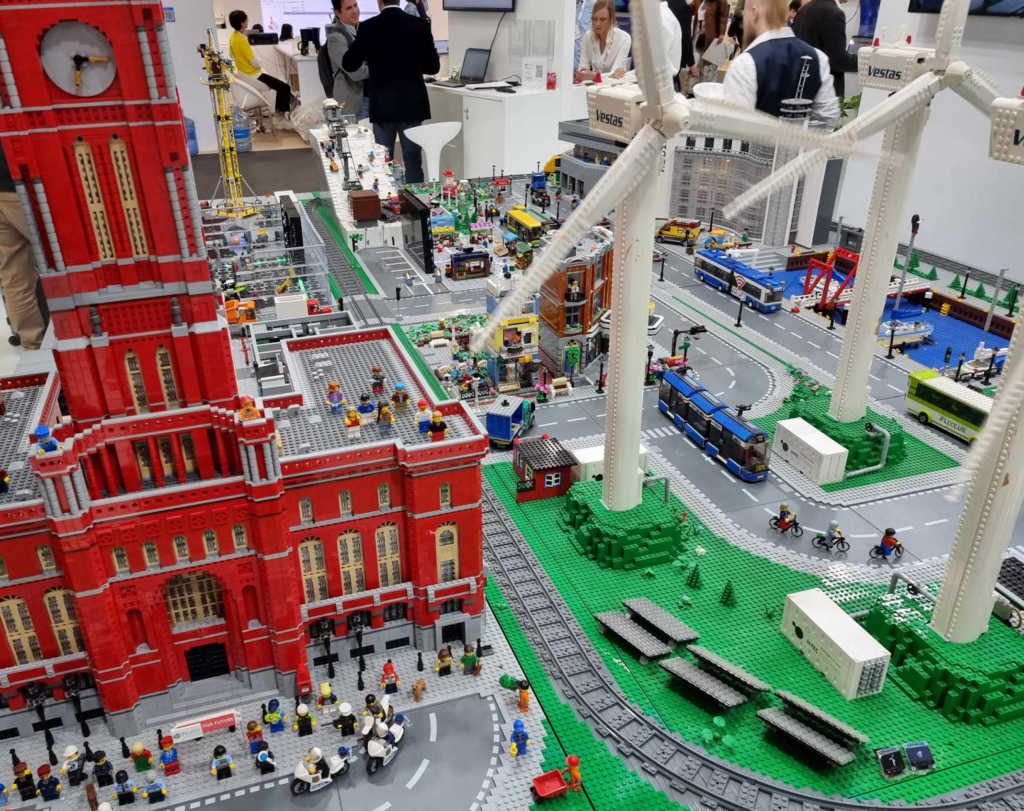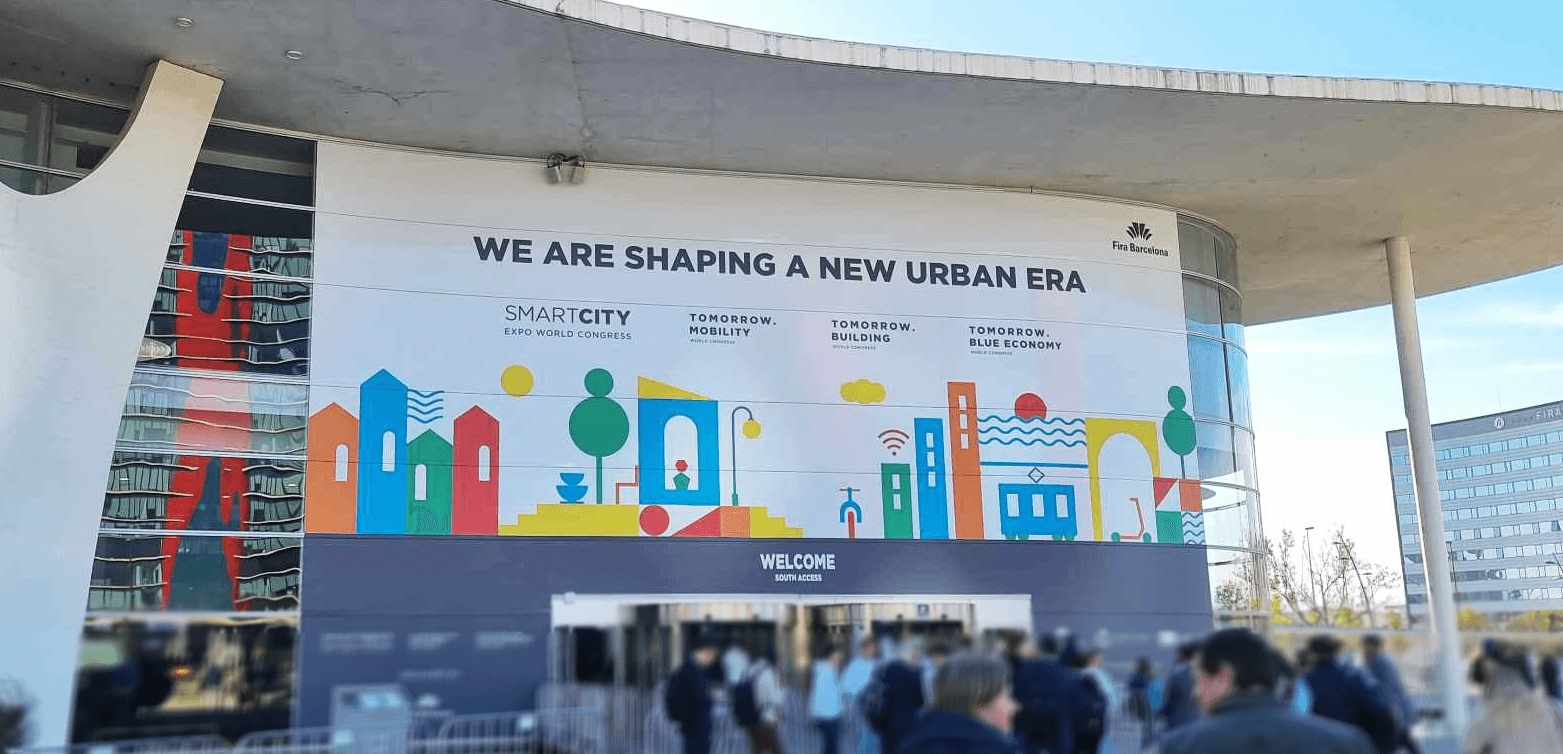Five key takeaways from Smart City Expo in Barcelona 2023
Daniel Dersén, Business area Manager for socially beneficial and sustainable digitisation at the Swedish Internet Foundation, explores five clear trends at this year’s Smart City Expo in Barcelona. In this blog post, he shares his insights from a fair that has everything and more when it comes to smart city solutions.
1. Industry 5.0 is here!
The fourth industrial revolution was defined by the integration of intelligent digital technologies (such as AI, Big Data, IoT, robotics and automation) and industrial processes kind of technology first. However, the fifth industrial revolution complements it by specifically putting research and innovation at the center of the transition to a sustainable, human-centric and resilient industry.
This means, the Agenda 2030 and the financial goals will have to co-exist side by side. Companies have a responsibility but also face a threat to become abandoned by its customers if they do not contribute positively. This year we saw more companies openly communicate their business idea as sustainable. For example, Deloitte said “For a better planet” and AWS said “helping cities become sustainable”. In addition, at the opening speech of the Expo CEO Ugo Valenti explained that all material used in the fair are now renewables.

2. The twin transition drives IoT installations in the cities
The megatrends “green” and “digital” transitions pushes each other. By adopting a twin transition approach, leaders can bring the digital and sustainability agendas together to future proof their organisations. The process of digitalisation and establishing IoT ecosystems has been slow in many countries, but with the city as a platform and clear goals of using it to solve its challenges, our society will become smarter. Smart cities are often described as connected cities, therefore twin transition will give the decision makers a clear “why” as how to use the digitalisation process as a tool for the green transition.
3. A myriad of solutions
The 2023 Expo is with its over 1,000 exhibitors and 25,000 visitors the biggest smart city expo ever. More companies understand the magnitude of this new market for future income. The amount of smart city solutions has exploded and almost created a Klondike-like situation where everyone it trying to dig gold. However, it is almost impossible for delegates from the cities to find and evaluate solutions that suits them. It is evident that we need aggregators and evaluators that help the cities navigate through the challenges and validate the solutions. These helping hands can be national support projects, consultants or companies and will be crucial in the transformation process. Since all cities are so different, we will see many kinds of smart cities. The solutions itself is not key but it’s all in how well they solve the problem for its inhabitants.

4. The Swedish climate contracts becomes an EU standard
In several presentation we heard about the 100+12 net zero cities in the EU and the climate contracts as a new tool for eco-governance. The climate contracts gives the cities a clear goal and direction in a mission-like manner. These missions run beyond elections and political processes and secure a long-term development of the city. I believe we should make use of the fact that Viable Cities first came up with the invention of this governance tool and that it is a Swedish invention. Sweden is ranked top in the world when it comes to sustainable development and innovation, and this is something we should be proud of and use actively to promote our companies and governance models.
5. The year AI really exploded
Even though AI have been around for many years, 2023 will be remembered as the year when AI had its breakthrough. It has been a year since Open AI launched Chat GPT and at this year’s expo you could see AI everywhere. Most companies mention AI technologies as part of their solutions. It is debated what impact AI will have on mankind, but one thing is sure and that is that AI will have a massive impact on all businesses and will be an extremely valuable tool in making cities climate neutral. In Sweden, the real estate company Örebrobostäder (ÖBO) have used a combination of IoT and AI solutions to decrease their energy costs with 50 % in 10 years. Someone said “AI will not take your job, but the person who uses AI better than you will”.
Written by: Daniel Dersén
Daniel Dersén is Business area Manager for socially beneficial and sustainable digitisation at the Swedish Internet Foundation. Among other things, Daniel has been an advisor to the government in data sharing and co-founded the National Data Workshop and Smart City Lab. He runs the Nordic working group for Web of things and Smart Cities under the W3C (a World Wide Web Consortium) and is a co-founder of the Urban Twin Transition Center (together with Gothenburg University and RISE).
